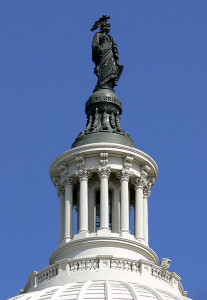A Richmond editorial found it very suspicious that 400 paroled Yankee prisoners would choose to stay in Richmond instead of heading north back to the Union’s relative abundance. If organized they could kidnap Jefferson Davis.
From the Richmond Daily Dispatch December 23, 1863:
Paroled Yankee prisoners.
–Many of our readers will be astonished to learn that there are now in this city four hundred paroled Yankee prisoners, who, for causes known to themselves, have deserted the “stars and stripes,” renounced Lincoln’s rule, and taken the oath of allegiance to the Confederate Government. Four hundred men, prima facie alien enemies because natives of the land of wooden nutmegs and red onions, turned loose in the very capital of the Southern Confederacy, and that, too, upon the mere pledge of their “words of honor” that they will not take up arms against us, or give information to our enemies. Some of them may be sincere sympathisers of the South; but is it not a short-sighted policy in the Government to take the chance of having a Yankee army thus created in our midst, and by our own consent to aid in thus striking down our cause? Most of these men declare that they fled their country to escape the Lincoln draft. What are they to do here?–Are they to be conscripted; and if conscripted, will they not desert our army? Surely, the man that deserts the service of his own country will not prove more faithful to that of his adoption. If they are not to go into the army, what are they to do? Fill clerkships and positions of artisans, and thus be placed in possession of all the secrets of the Government? Surely not.
If the enrolled Yankees now perambulating the streets of Richmond were to organize for the purpose, they could seize President Davis, on any night agreed upon, and before resistance could be made, “spirit” him off into the Yankee lines.
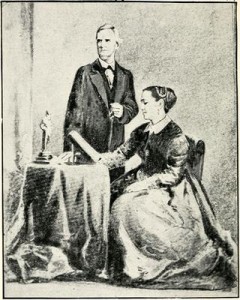
parolees threaten president’s domestic tranquility
The Mayor, under the State laws, has taken the bold ground that the Confederate authorities have no right to make alien enemies citizens of Virginia; and looking upon all the inhabitants of Yankee land as enemies of the State, and therefore suspicious characters, has had a number of them arrested and imprisoned. The Trojan horse and its results is not forgotten by him; and the fact that our jails and penitentiary are being overrun by these gentlemen of honor, who have fled their own country, does not strengthen his faith in their fair promises, or make him at all desirous to see our overgrown population increased by the addition of such men. As several of these parties are to be called before him to-day, when he will deliver a legal opinion upon the right and propriety of paroling prisoners to remain here, it would be well for the Confederate authorities to attend and hear him.–Mr. Mayor is one of the best posted criminal lawyers in Virginia, having served as prosecutor for more than a quarter of a century, and will therefore be able to give light to those who seem to know but little of our laws, and of the rights of Virginia and her Courts.
What made the whole thing more suspicious was that Confederate citizens in Europe seemed to be in no hurry to brave the blockade to join their fellow citizens in the struggle for independence. Some excellent sarcasm from the same issue:
Confederates abroad.
Amid the general privations and heroic exertions of our people, it is gratifying to know that the Confederates abroad are enduring with unexampled fortitude their separation from their native land, and their afflicting deprivation of the labors and renown in arms which their brethren at home are achieving. It is distressing to think that these unhappy exiles can have no share in the deliverance of their beloved country from its oppressors, and that their posterity will not be able to point to their names on the emblazoned scroll which will hand down to future ages the bronzed and immortal veterans who are carving out with their good swords such a heritage of glory as Greek and Roman never won. The ragged raiment, the bare and bleeding feet, the couch of winter snows with its canopy of Heaven, the terrific battle shock, and the graves where sleep, are all denied the homesick exiles of the sunny South, who, imprisoned in the splendid capitals of Europe, pine like caged eagles to wrestle with the tempest and bare their bosoms to the thunderbolt. The captive crusader, looking out from his rugged tower upon the embattled host of his warlike brethren passing by to humble the proud Moslem, and, amid the cheering blasts of their wild clarions, failing to hear his cry for deliverance, must have felt pangs akin to those which rend the bosoms of those distressed Confederates, whom Yankee blockaders and a stern sense of duty to themselves are chaining to the inglorious security of Europe.
No man with a man’s heart would willingly leave his country at such an hour as this, and therefore we can easily imagine the pangs which rend the bosoms of our expatriated brethren. To be compelled to stand aloof from one’s friends when in adversity, to be obliged to go out when burglars are working away at the old mansion house where one was born, and to know that the lives of those who nourished and played with us in our childhood, and whose blood runs in our veins, are in imminent peril, whilst we are constrained to look helplessly on from a neighbor’s window, is a refinement of torture enough to lacerate the toughest sensibilities, and to drive Reason from her throne. Such is the sad condition of our unhappy brethren in Europe. Who can depict the anguish of their souls? Every gale from the east seems burthened with their plaintive sighs. Surrounded on all hands by revilers of their domestic institutions, and living under Governments which studiously ignore the existence of their country, they are doomed to a condition of isolation and orphanage in comparison with which the crimson wreck of a battle- field and the red flames of the midnight conflagration are agreeable and animating spectacles.
But there is no condition of humanity bereft of all consolation, and it is pleasing to discover occasionally from foreign journals, and other vehicles of intelligence, that, whilst the minds of Confederates abroad are subjected to unspeakable tortures, their bodies are not denied the creature comforts which may be picked up here and there in European capitals. We rejoice to know that they have at least enough to eat, drink, and wear; that the roast beef of Merry England and the choice vintages of gallant France solace their desponding spirits; that they are much admired and sought after in social circles, and sometimes give vent to their unearthly patriotism at the festive board. It must be a touching sight to see them swallowing with convulsive throats an alderman’s turtle, permitting the Good Samaritans of Liverpool and London to pour oil and wine into their bleeding wounds, and drinking in solemn silence to the memory of Stonewall Jackson. Let us hope that, by these merciful appliances, they may be enabled to survive the rigors of their separation from desolate homes and from fields where brave men fight and fall, and that “when this cruel war is over” they will throng back to us like swallows in the spring.
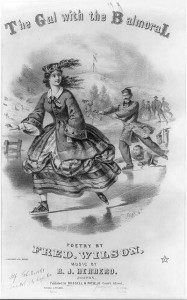



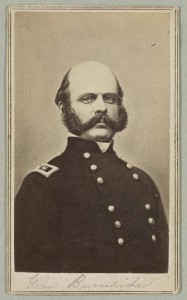
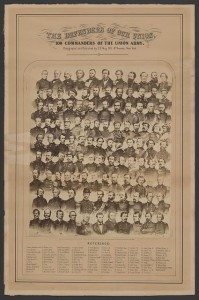
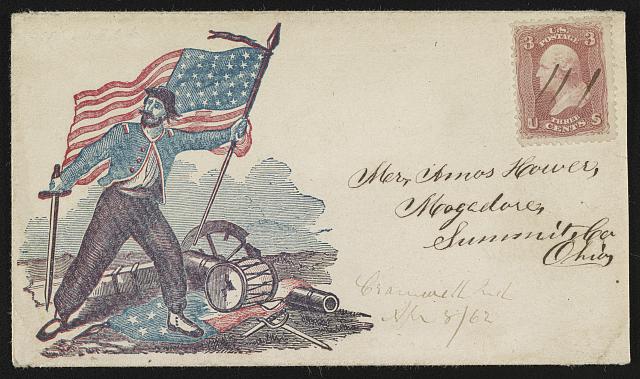
![Capt. Sleeper 10th Mass. Battery and other officers, Dec. 1863 (by James gardner, photographed 1863, [printed between 1880 and 1889]; LOC: LC-DIG-ppmsca-34221)](https://www.bluegrayreview.com/wp-content/uploads/2013/12/34221r-300x245.jpg)
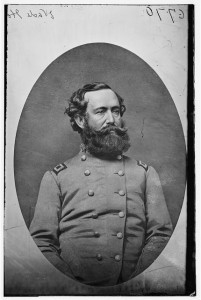
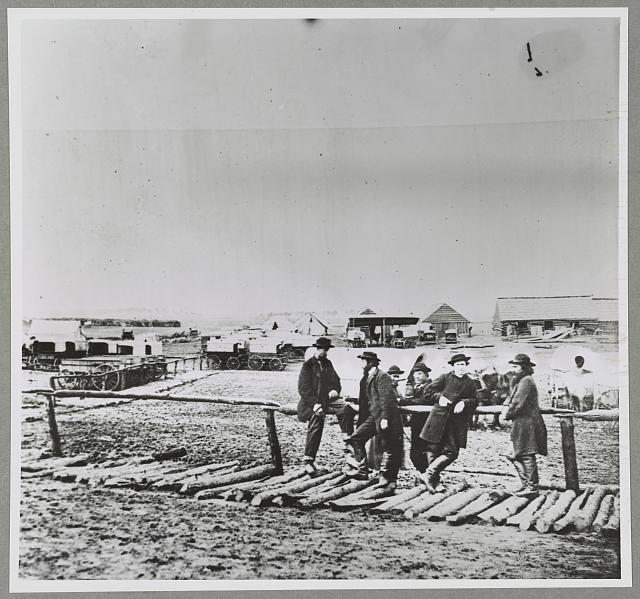
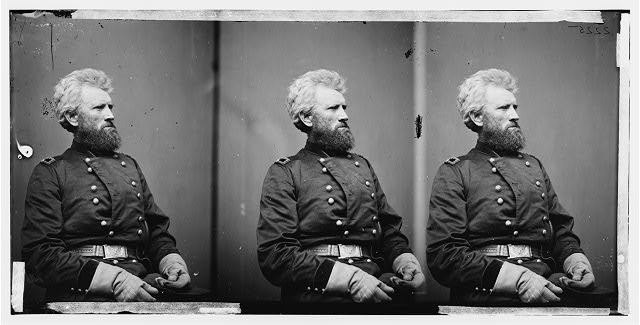
![Hon. Clement Laird Vallandigham [?] of Ohio (between 1855 and 1865; LOC: LC-DIG-cwpbh-01194)](https://www.bluegrayreview.com/wp-content/uploads/2013/05/01194r-215x300.jpg)
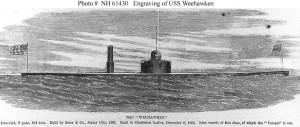
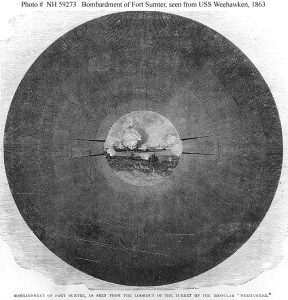
![[View from parapet of Fort Sumter, Sept. 8, 1863, showing Federal ironclads WEEHAWKEN, MONTAUK, and PASSAIC; taken by a Confederate photographer] (by George S. Cook, 1863, printed later; LOC: LC-USZ62-49549)](https://www.bluegrayreview.com/wp-content/uploads/2013/12/3a49652r-277x300.jpg)
